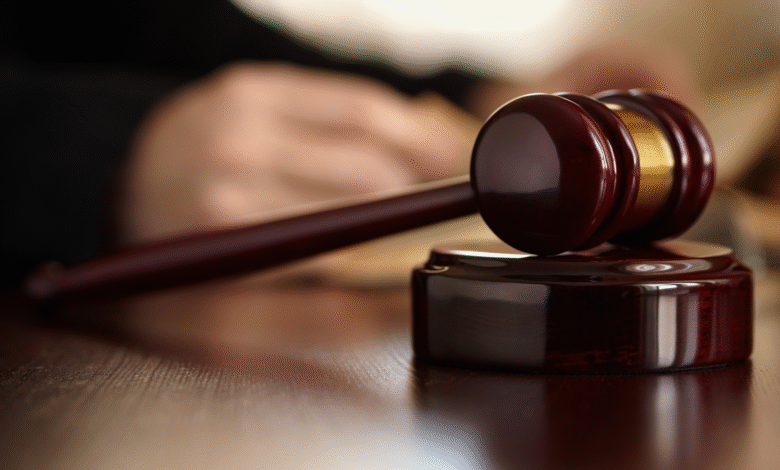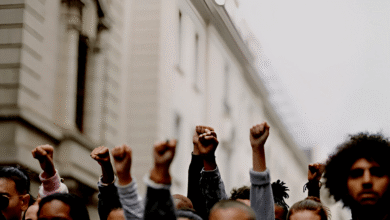Top U.S. Civil Rights Attorneys: Fight Discrimination & Harassment
Civil Rights Attorneys fighting discrimination & harassment? Our top U.S. lawyers protect your workplace, housing, and constitutional rights.

In today’s complex legal landscape, civil rights attorneys serve as essential guardians of justice, protecting individuals from various forms of discrimination and harassment across the United States. These legal professionals specialize in enforcing federal and state laws that guarantee equal treatment and fundamental freedoms for all citizens, regardless of race, gender, religion, sexual orientation, disability, or other protected characteristics.
The fight against discrimination and harassment has evolved significantly over the decades, with civil rights law encompassing workplace violations, housing discrimination, educational inequities, police misconduct, voting rights infringements, and systemic institutional bias. When individuals face these challenges, skilled civil rights lawyers become their voice in courtrooms and negotiation tables, ensuring that constitutional protections translate into real-world justice.
Top civil rights attorneys across the nation have built distinguished careers by successfully representing clients in landmark cases that have shaped American jurisprudence. These legal experts possess deep understanding of complex civil rights statutes, including Title VII of the Civil Rights Act, the Americans with Disabilities Act, the Fair Housing Act, and numerous state-specific anti-discrimination laws. Their expertise extends beyond mere legal knowledge; they combine strategic litigation skills with passionate advocacy to secure meaningful remedies for their clients.
The selection of the right civil rights attorney can determine the outcome of a case and the extent of justice achieved. Whether dealing with workplace harassment, police brutality, educational discrimination, or housing violations, victims need legal representation that combines technical expertise with unwavering commitment to civil rights principles. This comprehensive guide examines the nation’s most respected civil rights legal professionals, their areas of specialization, notable achievements, and the qualities that distinguish exceptional advocates in this critical field of law.
What Are Civil Rights Attorneys?
Civil rights attorneys are specialized legal professionals who focus exclusively on protecting and enforcing the fundamental rights guaranteed by the U.S. Constitution, federal statutes, and state laws. These lawyers dedicate their careers to combating various forms of discrimination and harassment, ensuring that all individuals receive equal treatment under the law regardless of their protected characteristics.
The scope of civil rights law is remarkably broad, encompassing multiple areas where discrimination can occur. Civil rights lawyers handle cases involving employment discrimination, where workers face unfair treatment based on race, gender, age, disability, religion, or sexual orientation. They also address housing discrimination, educational inequities, voting rights violations, police misconduct, and systemic institutional bias that affects marginalized communities.
These legal professionals possess specialized knowledge of complex federal legislation, including Title VII of the Civil Rights Act of 1964, the Americans with Disabilities Act, the Age Discrimination in Employment Act, the Fair Housing Act, and Section 1983 civil rights claims. They understand how these laws interact with state-specific anti-discrimination statutes and local ordinances, enabling them to build comprehensive legal strategies for their clients.
Civil rights attorneys employ various legal approaches, from negotiating settlements and filing administrative complaints to pursuing complex federal litigation. They work with government agencies like the Equal Employment Opportunity Commission, state human rights commissions, and federal courts to seek remedies that may include monetary damages, injunctive relief, policy changes, and attorney fees.
Key Areas of Civil Rights Law
Employment Discrimination and Workplace Harassment
Employment discrimination represents one of the most common areas where civil rights attorneys provide crucial legal services. Workplace discrimination can manifest in hiring practices, promotion decisions, salary disparities, wrongful termination, and hostile work environments. Civil rights lawyers specializing in employment law handle cases involving racial discrimination, gender bias, sexual harassment, religious persecution, age discrimination, and disability-related violations.
Workplace harassment cases require particular expertise, as attorneys must demonstrate that the conduct was severe or pervasive enough to create a hostile work environment. These cases often involve complex evidence gathering, witness interviews, and strategic litigation to hold employers accountable for failing to prevent or address discriminatory behavior.
Housing and Accommodations Rights
Housing discrimination remains a persistent problem across the United States, with civil rights attorneys playing vital roles in enforcing fair housing laws. These legal professionals handle cases involving rental discrimination, mortgage lending bias, homeowners’ association violations, and accessibility issues for individuals with disabilities.
Fair housing lawyers work to ensure that housing providers cannot discriminate based on race, color, religion, sex, national origin, familial status, or disability. They pursue cases through federal and state courts, housing agencies, and alternative dispute resolution processes to secure equal housing opportunities for all individuals.
Educational Civil Rights
Educational discrimination affects students from elementary school through higher education, with civil rights attorneys advocating for equal educational opportunities. These cases involve discriminatory disciplinary practices, inadequate special education services, sexual harassment in schools, religious freedom violations, and admissions discrimination.
Educational civil rights lawyers work with school districts, universities, and government agencies to ensure that educational institutions provide equal access and treatment for all students, regardless of their protected characteristics.
Police Misconduct and Criminal Justice Reform
Police misconduct cases represent some of the most challenging and high-profile work undertaken by civil rights attorneys. These lawyers pursue Section 1983 claims against law enforcement officers and municipalities for excessive force, false arrest, racial profiling, and other constitutional violations.
Police misconduct attorneys must navigate complex qualified immunity doctrines, municipal liability standards, and constitutional law principles while advocating for victims of law enforcement abuse. Their work often contributes to broader criminal justice reform efforts and policy changes within police departments.
Top Civil Rights Law Firms in the United States
The Cochran Firm
The Cochran Firm stands as one of the most recognizable names in civil rights law, building upon the legacy of Johnnie Cochran’s groundbreaking work in high-profile civil rights cases. This multi-office firm continues to handle significant discrimination and harassment cases across the country, with attorneys specializing in police misconduct, employment discrimination, and personal injury cases with civil rights implications.
The firm’s attorneys have secured numerous multi-million dollar settlements and verdicts for clients facing various forms of discrimination. Their approach combines aggressive litigation strategies with community advocacy, ensuring that individual cases contribute to broader social justice objectives.
Southern Poverty Law Center
The Southern Poverty Law Center operates as both a civil rights organization and a legal advocacy group, with civil rights attorneys who tackle some of the nation’s most challenging discrimination cases. Their legal team focuses on combating hate crimes, challenging discriminatory laws, and pursuing systemic reform through strategic litigation.
SPLC attorneys have been instrumental in dismantling discriminatory practices in education, criminal justice, and immigrant rights. Their work extends beyond individual case representation to include policy advocacy and legislative reform efforts that address root causes of discrimination.
NAACP Legal Defense and Educational Fund
The NAACP Legal Defense and Educational Fund employs some of the nation’s most skilled civil rights lawyers, continuing the organization’s historic role in advancing racial justice through strategic litigation. Their attorneys handle cases involving voting rights, criminal justice reform, educational equity, and economic justice.
LDF attorneys have argued numerous cases before the Supreme Court and federal appellate courts, establishing important precedents that protect civil rights nationwide. Their work combines individual case advocacy with systemic reform efforts that address institutional discrimination.
American Civil Liberties Union
The ACLU’s legal team includes specialized civil rights attorneys who handle a broad range of constitutional and civil liberties cases. Their lawyers work on issues including free speech, religious freedom, LGBTQ+ rights, reproductive rights, and government accountability.
ACLU attorneys pursue both individual cases and class action lawsuits that challenge discriminatory laws and practices. Their litigation strategy focuses on establishing legal precedents that protect civil liberties for all Americans.
Notable Individual Civil Rights Attorneys
Ben Crump
Ben Crump has emerged as one of the most prominent civil rights attorneys in contemporary America, representing families in high-profile cases involving police misconduct and racial discrimination. His legal practice focuses on wrongful death cases, police brutality, and civil rights violations that disproportionately affect African American communities.
Crump’s approach to civil rights law combines aggressive litigation with media advocacy and community organizing. He has secured significant settlements and verdicts while raising public awareness about systemic discrimination and police accountability issues.
Gloria Allred
Gloria Allred has built a distinguished career as a civil rights attorney specializing in women’s rights, sexual harassment, and gender discrimination cases. Her legal practice has handled numerous high-profile cases involving workplace harassment, sexual assault, and gender-based discrimination across various industries.
Allred’s advocacy extends beyond individual case representation to include legislative reform efforts and public education campaigns about women’s rights and gender equality issues.
David E. Weiner
David E. Weiner represents clients in complex employment discrimination and civil rights cases throughout the United States. His legal practice focuses on class action lawsuits, whistleblower protection, and individual discrimination cases involving race, gender, age, and disability-based violations.
Weiner’s expertise in employment law and civil rights litigation has resulted in significant recoveries for clients facing various forms of workplace discrimination and retaliation.
Morris Dees
Morris Dees co-founded the Southern Poverty Law Center and has spent decades pursuing civil rights cases against hate groups and discriminatory organizations. His legal work has focused on dismantling white supremacist groups and securing justice for victims of hate crimes and institutional discrimination.
Dees’ litigation strategy has involved complex civil cases that have bankrupted hate groups and established important precedents for holding extremist organizations accountable for their actions.
How to Choose the Right Civil Rights Attorney
Experience and Specialization
Selecting the right civil rights attorney requires careful evaluation of their experience and specialization in relevant areas of law. Prospective clients should seek lawyers who have handled similar cases and demonstrated success in their specific type of discrimination or harassment situation.
Civil rights lawyers often specialize in particular areas, such as employment discrimination, housing rights, educational civil rights, or police misconduct. Understanding an attorney’s specific expertise helps ensure that clients receive representation from professionals who understand the nuances of their particular legal challenges.
Track Record and Reputation
The reputation and track record of civil rights attorneys provide important indicators of their effectiveness and commitment to client advocacy. Prospective clients should research attorneys’ previous case results, professional recognition, and standing within the legal community.
Successful civil rights lawyers often have documented histories of securing favorable settlements, trial victories, and systemic changes that benefit their clients and broader communities affected by discrimination.
Resources and Support
Civil rights cases often require significant resources for investigation, expert witnesses, and litigation expenses. Clients should evaluate whether prospective attorneys have the financial resources and support staff necessary to pursue their cases effectively.
Established civil rights law firms typically have resources to handle complex litigation, while solo practitioners may need to associate with other attorneys or organizations to provide comprehensive representation.
Communication and Accessibility
Effective communication between civil rights attorneys and their clients is essential for successful case outcomes. Clients should assess whether prospective lawyers are accessible, responsive, and able to explain complex legal concepts in understandable terms.
Civil rights cases can be emotionally challenging and may require ongoing communication throughout extended litigation periods. Attorneys who prioritize client communication and support provide better representation experiences.
The Legal Process in Civil Rights Cases
Initial Case Evaluation
The legal process in civil rights cases typically begins with comprehensive case evaluation, where civil rights attorneys assess the merits of potential claims and identify applicable legal theories. This evaluation involves reviewing evidence, interviewing witnesses, and analyzing relevant federal and state laws.
During initial consultations, civil rights lawyers help clients understand their legal options, potential outcomes, and the resources required to pursue their claims effectively. This assessment phase is crucial for developing realistic expectations and strategic litigation approaches.
Administrative Proceedings
Many civil rights cases require initial filing with administrative agencies before pursuing federal court litigation. Employment discrimination cases often begin with Equal Employment Opportunity Commission complaints, while housing discrimination may involve state or federal housing agencies.
Civil rights attorneys guide clients through administrative proceedings, which may result in settlements, agency investigations, or Right to Sue letters that permit federal court litigation. These administrative processes can provide cost-effective resolution while preserving options for further legal action.
Discovery and Investigation
Discovery phases in civil rights cases involve extensive information gathering, including document requests, depositions, and expert witness preparation. Civil rights lawyers use discovery to uncover evidence of discriminatory patterns, institutional policies, and individual instances of bias or harassment.
Effective discovery strategies are essential for building compelling cases that demonstrate both individual harm and broader discriminatory practices that may affect entire classes of individuals.
Settlement Negotiations
Many civil rights cases resolve through settlement negotiations rather than trial proceedings. Civil rights attorneys negotiate with defendants and their insurance companies to secure compensation that addresses their clients’ damages while potentially requiring policy changes that prevent future discrimination.
Settlement agreements in civil rights cases may include monetary damages, injunctive relief requiring policy changes, and attorney fee awards that make representation accessible to discrimination victims.
Trial and Appeals
When settlement negotiations fail, civil rights attorneys pursue trial proceedings in federal or state courts. Civil rights trials often involve complex constitutional and statutory interpretation, requiring attorneys with specific expertise in civil rights litigation.
Appeals processes in civil rights cases may establish important precedents that affect future discrimination cases and broader civil rights protections. Appellate advocacy requires specialized skills and understanding of constitutional law principles.
Recent Trends in Civil Rights Law
Technology and Digital Discrimination
Modern civil rights attorneys increasingly handle cases involving technology-based discrimination, including algorithmic bias in hiring, housing, and lending decisions. These emerging areas require lawyers who understand both traditional civil rights principles and contemporary technology applications.
Digital discrimination cases present unique challenges in proving discriminatory intent and establishing causation in automated decision-making systems. Civil rights lawyers must develop new litigation strategies to address these evolving forms of bias.
LGBTQ+ Rights Expansion
Recent developments in LGBTQ+ rights have created new opportunities for civil rights attorneys to challenge discrimination based on sexual orientation and gender identity. Supreme Court decisions and legislative changes have expanded protections while creating new areas of legal practice.
LGBTQ+ civil rights cases involve employment discrimination, healthcare access, educational rights, and family law issues that require specialized knowledge of evolving legal standards and social dynamics.
Criminal Justice Reform
Civil rights attorneys play increasingly important roles in criminal justice reform efforts, challenging discriminatory practices in policing, prosecution, and sentencing. These cases often involve complex constitutional issues and systemic reform litigation.
Criminal justice civil rights cases may address racial profiling, excessive force, wrongful convictions, and discriminatory enforcement practices that disproportionately affect minority communities.
Workplace Harassment in the #MeToo Era
The #MeToo movement has significantly impacted workplace harassment litigation, with civil rights attorneys handling increased numbers of sexual harassment and assault cases. These cases often involve high-profile defendants and complex issues of employer liability.
Sexual harassment attorneys must navigate evolving legal standards while addressing institutional cultures that may have enabled discriminatory behavior over extended periods.
Conclusion
Top civil rights attorneys across the United States continue to serve as essential guardians of constitutional freedoms and equal protection under the law. These dedicated legal professionals combine technical expertise with passionate advocacy to combat discrimination and harassment in all its forms, from workplace violations to systemic institutional bias.
The landscape of civil rights law continues to evolve, with new challenges emerging in technology, criminal justice, and social equality. Civil rights lawyers must adapt their strategies to address contemporary forms of discrimination while building upon decades of legal precedent that protect fundamental rights.
For individuals facing discrimination or harassment, selecting the right civil rights attorney can determine not only the outcome of their specific case but also their contribution to broader social justice objectives. The most effective civil rights advocates combine legal excellence with unwavering commitment to equality and justice for all.
As society continues to grapple with issues of bias, inequality, and systemic discrimination, civil rights attorneys remain indispensable advocates for those whose fundamental rights have been violated. Their work ensures that constitutional protections translate into real-world justice and that the promise of equal treatment under law becomes reality for all Americans.
The ongoing fight against discrimination and harassment requires continued vigilance, strategic litigation, and dedicated advocacy from the nation’s top civil rights attorneys. Through their efforts, the principles of equality and justice continue to advance, creating a more fair and inclusive society for current and future generations.











